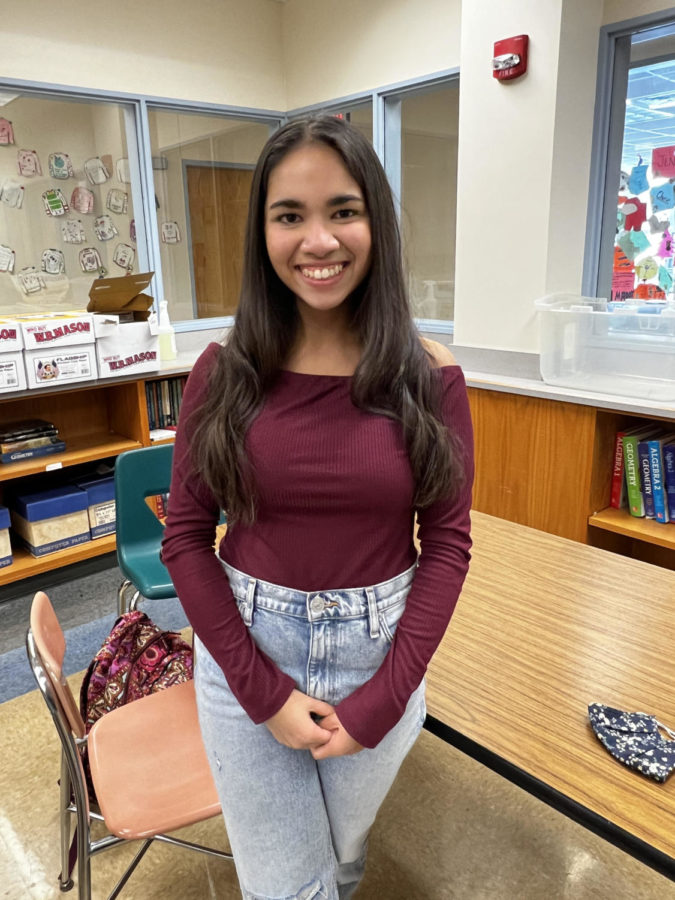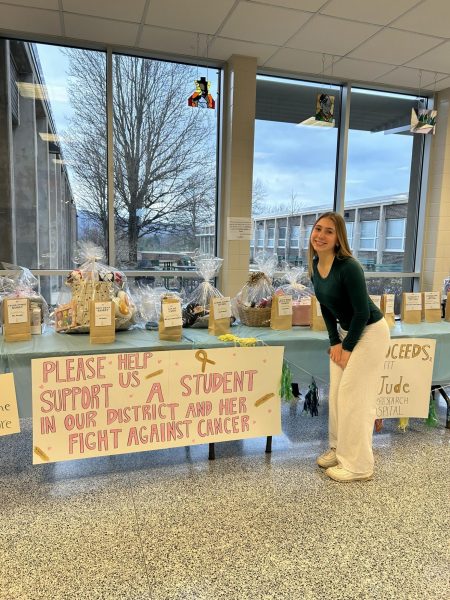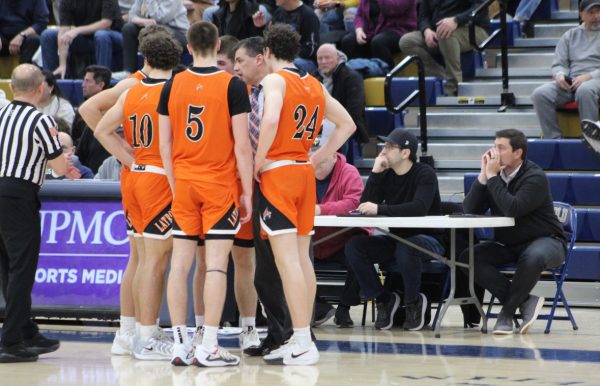Jain Just Gets It
“I am the type of person to see an opportunity and go after it. It is a blessing that I could do it,” explained senior Maya Jain on her opportunity with the National Security Language Initiative for Students. Funded by the US department of state, NSLI-Y’s virtual scholarships are very selective and prestigious with class sizes being as low as 10 students per session.
“It is pretty rigorous work. We are going through the basics again like learning the vowels, there’s a different script called Devanagari; we’re learning how to write it, how to say simple things like ‘hello, how are you’. It is very basic but it is very fast-paced,” said Jain. [Students] learn a variety of skills and information that help connect the culture to the language. They participate in speaking activities following the lessons then finish the sessions off with a cultural activity. In the past, one of the activities was a cultural project on food.
Maya is no stranger to the values of home-cooked Indian cuisine. “We’re all foodies in my house [my mom] does cook a lot so that is something that I have always grown up with. In different countries I feel like you can say ‘this is Thai food or this is Japanese food’, but in India you can’t just pinhole food like that and say ‘this is Indian food’ because there’s North Indian food which is different from South Indian. It’s just dependent on where it is, there’s different foods that grow in those areas,” said Jain.
“I didn’t grow up learning Hindi in my house. My parents immigrated from India to America in their early to mid-20s, but my siblings and I never grew up learning Hindi,” said Maya Jain. “That’s why I wanted to do this program because I felt like there was a gap in my own identity.”
“It was just so hard to connect because we’ve always lived in this small town and I’ve never really had any friends that were Indian. We’ve had cousins all over the country and still in India, so I was never really close with them in that way – that we could share those experiences. I think that maybe my parents just wanted us to assimilate to American culture and they didn’t want to confuse us in a way.”
She continued, “I would never trade how I grew up for anything. I don’t hold any resentment towards that. I just think it’s super motivating. I believe in destiny; this is how my life is. I believe it is so much more motivating for me now.”
“I just felt like I was missing something. I don’t speak the language [and because] our religion is all based around the language, it’s hard to understand,” said Jain.
Maya explained that she had always lived her life within the faith, grounded in the principle of service. She grew up learning through the experiences she had with her parents. Her mom still keeps her practices routine as she did growing up religiously. Maya Jain believes that her pursuit in learning the Hindi language has made it possible to understand Jainism better, but also grow and connect with her family.
She attributes the start of her interest in wanting to learn Hindi to the start of the COVID-19 pandemic. Due to their temple converting over to virtual sessions, the Jains had the opportunity to attend sessions much more frequently than the few times a year they would normally be able to attend in person.
Maya really enjoyed getting to sit in on those virtual meetings with her mom because she felt a connection she hadn’t before. “I think that’s when my mind started to shift because we were at home and we could really sit down and focus on something. I was learning the little verses and reciting them with my mom. My mom is very religious and disciplined and I could realize when I was doing it with her and practicing my pronunciation. I was seeing it give her peace and give her a sense of mind as she’s praying for people and their health and safety. It was also giving me a sense of calmness. It was really special for me,” said Jain.
“I was always close with my parents but now I feel that I’m getting even closer with them because after class I get to practice with them. It’s special for them too because [of the nostalgia] bringing them back to what they learned in kindergarten,” said Jain. Seeing her connection with her family grow made Maya feel enthralled. She furthers, “I just felt a calling to really understand my cultural identity and my personal identity. That was something I felt I was lacking so I am glad that I am pushing towards it and I’m doing this to get closer to my family and relatives that I’ve never been able to communicate with before because they don’t speak English. On my birthday my grandma from India called (she doesn’t speak any English) and I was saying just the littlest, most basic things I knew how to say, but she was so shocked. Honestly it was the first real conversation I was able to have with her.”
Maya shared insight on the importance of language education, “It’s more than the actual knowledge of the language and skills, [studying a culture] teaches you empathy. Everyone is on their own path.” Having these shared experiences of learning the language alongside her virtual peers opened Maya’s eyes. She believes, “You shouldn’t be going away and closing doors, you should be opening them.”

Harley is a returning three time lettermen for Field hockey. She is very involved in the school while being the Vice President of SADD club, and an active...









